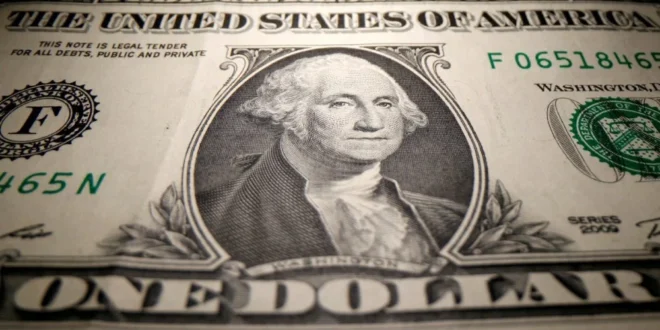Desmond Lachman
Unfortunately, in clinging to its backward-looking, data-dependent policy, the Fed shows no sign of changing policy course anytime soon. By so doing, the Fed risks setting us up for a harder economic landing than would be needed to contain inflation.
John Maynard Keynes famously wrote, “When the facts change, I change my mind. What do you do, sir?”
Now that the economic facts are rapidly changing for the worse, the Federal Reserve would do well to heed Keynes’s observation. Maybe then it would back down quickly from its current mantra that interest rates need to stay high for longer to bring down inflation. If, despite these new facts, the Fed persists with its hawkish monetary policy stance, we should brace ourselves for a hard economic landing.
Among the more disturbing new facts is the sudden loss of investor appetite, both at home and abroad, for long-term U.S. Treasury bonds. Investors are becoming increasingly concerned that the budget deficit is heading towards 8 percent of GDP at a time when the country is close to full employment.
They are also concerned that given the political dysfunction in Washington, there is little prospect that this budget deficit will be reduced anytime soon.
The question investors are asking is: who will fund the government’s long-term borrowing needs and at what price? This question becomes all the more poignant at a time when the Fed continues to reduce the size of its balance by $95 billion a month by not rolling over maturing Treasury bonds and mortgage-backed securities.
It also becomes poignant at a time when we know that both China and Japan are reducing the size of their Treasury bond holdings.
The net upshot of this change in investor sentiment is that in the short space of two months, the all-important Treasury bond yield, on which many other interest rates are benchmarked both at home and abroad, has shot up from less than 4 percent to around 4.75 percent or their highest rate in sixteen years. This spike has already caused thirty-year mortgage rates to jump to close to 8 percent, making housing all the more unaffordable to the average American household. It remains to be seen whether the U.S. housing market and the auto market can withstand such high interest rates.
Another major change in facts that the Fed will do well to heed is the cracks that are now appearing in the banking system. Already at the start of the year, we had the second and third largest bank failures in U.S. history when Silicon Valley Bank and First Republic Bank failed. These two banks failed mainly because of the damage that higher interest rates inflicted on their long-term bond and credit portfolios. With long-term interest rates now spiking even higher, the banking system is bound to take another big hit to its balance sheet from falling bond prices.
It also hardly helps that it is now all too apparent that we will have a wave of real commercial estate loan failures next year. That is when property developers will have to roll over $500 billion in loans at markedly higher interest rates at the very time that they are suffering from unusually high vacancy rates in a post-Covid world. This could constitute a significant blow to the regional banks, whose exposure to commercial property lending is close to 20 percent.
When he was Fed Chairman, Alan Greenspan observed that no country is an island to itself in today’s highly integrated world economy. This is why the Fed would do well to pay heed to the rapid deterioration in the world economic outlook. China, the world’s second-largest economy, is now experiencing the slowest economic growth in decades in the wake of the bursting of its outsized housing and credit market bubble.
Meanwhile, Germany has already experienced three consecutive quarters of negative economic growth as it struggles with the combined impact of a Russian-induced energy shock and the slowing of the Chinese economy. With the European Central Bank raising interest rates at a time of economic weakness, it must only be a matter of time before the rest of the European economy succumbs to recession.
All of this would suggest that in setting interest rate policy, the Fed should be forward-looking and consider the major negative shocks at home and abroad with which the U.S. economy will have to grapple. Unfortunately, in clinging to its backward-looking, data-dependent policy, the Fed shows no sign of changing policy course anytime soon. By so doing, the Fed risks setting us up for a harder economic landing than would be needed to contain inflation.
American Enterprise Institute senior fellow Desmond Lachman was a deputy director in the International Monetary Fund’s Policy Development and Review Department and the chief emerging-market economic strategist at Salomon Smith Barney.
 Geostrategic Media Political Commentary, Analysis, Security, Defense
Geostrategic Media Political Commentary, Analysis, Security, Defense





